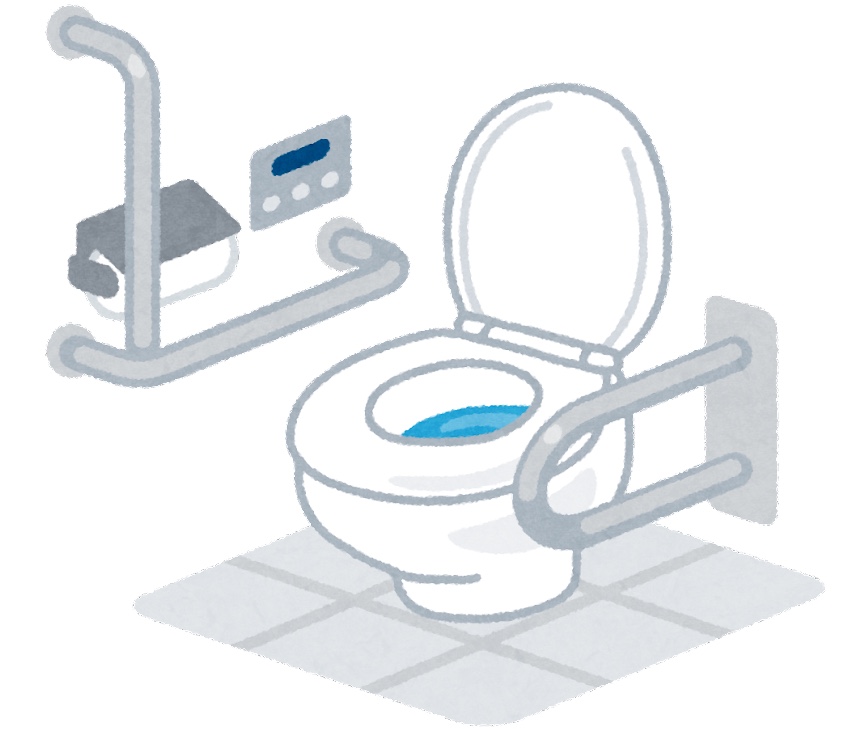All foreigners who come to Japan from abroad are impressed by the cleanliness of Japanese toilets. Conversely, many Japanese who are accustomed to the cleanliness of Japanese toilets have traveled abroad and found the toilets in their destinations to be dirty and unpleasant. Japanese who are used to living abroad may feel nostalgia for the cleanliness of their own country’s toilets when they return home, and they may be impressed just like foreigners.
Japanese toilets are clean to everyone’s eyes, but why do Japanese toilets maintain their cleanliness? This article will explore the secrets behind the cleanliness of Japanese toilets. Here are 7 reasons why Japanese toilets are the cleanest in the world.
- Frequent cleaning and checking of toilets
- High sense of civic virtue among the Japanese people as a whole
- Hardworking Japanese
- Cleaning education from childhood
- Humid climate
- Modernization of entire Japanese cities
- People tend to think that the cleanliness of toilets reflects the attitude of the management
Frequent cleaning and checking of toilets
Japanese toilets are cleaned more thoroughly than anything else in the world. In buildings, restaurants, shopping centers, etc, toilets have a “Toilet Check Chart” posted in a visible place so that you can see who checked the cleanliness of the toilet and at what time. In other countries, however, you will not find even a “toilet checklist”. I assume that cleaning is not as frequent as in Japan. The reality is that many toilets make you wonder whether they are not cleaned as often as toilets in Japan. First, Japanese toilets are clean because they are cleaned frequently.
High sense of civic virtue among the Japanese people as a whole
Foreigners are surprised not only by the cleanliness of toilets in Japan. Compared to other countries, Japan is also superior in terms of streetscapes with no litter or cigarette butts on the side of the road. I believe this is due to the Japanese people’s respect for morality in social life. To put it simply, many people think that littering is a nuisance to others, so why do it? I would say that Japanese people maintain the bathrooms clean because they know it’s for everyone to use. In other countries, the inside of a house is often very clean, but once you step outside, it is a mess. In general, I feel that many Japanese people do not go with the idea “it’s fine as long as it’s good enough for me,” but rather “I don’t want to do anything that might bother other people”.
Hardworking Japanese
In other countries, many people think that cleaning should be done by contractors. In France, if you ask an employee of a supermarket or restaurant to clean toilets, he or she may refuse, saying, “This is not my job. Also, even if frequent toilet checks are done as in Japan, there will be people who will still neglect to check. Many people may not do it because cleaning, even if it is dirty, is a hassle. In this respect, Japanese people seem to do their jobs properly and responsibly even if no one is watching. The cleanliness of Japanese toilets can be said to be rooted in the hard work of every Japanese person.
Cleaning education from childhood
When I tell people from overseas that in Japan there is a “cleaning time” at school from elementary school age, they are very surprised. Many people might say “Schools should hire contractors to clean the toilets, and I am not paying taxes to have my child clean the school toilets!”. Many people would be outraged. I get the impression that in Europe and the United States, there is a strong perception that cleaning is a job for servants. In Japan, on the contrary, children from all types of social standing are not considered servants, but cleaning is a part of their discipline. Even in schools, students are required to clean their classrooms. This is not primarily to reduce labor costs for cleaners but as a part of education. There are probably not many countries in the world that require students to clean. I think the reason why we Japanese are often described as “clean-lovers” is that we have been cleaning our schools every day since we were small children.
Humid climate
Because of Japan’s humid climate, we always have to be careful about the growth of bacteria, which has probably led us to keep toilets clean, where bacteria are most likely to occur. Not keeping them clean is hazardous to our health. This may be an old-fashioned practice in Japan, where humidity is high and bacteria are easily generated.
Modernization of entire Japanese cities
Some people believe that people began to clean up after the rapid modernization of Japan, shortly before the bubble period and the building of new towns. I believe that the consciousness to clean up the city was born from the mindset of wanting to take good care of the city because it was built by our very own hands after the war. I believe that the people’s awareness will change as they see the city gradually become cleaner and more modernized.
People tend to think that the cleanliness of toilets reflects the attitude of the management
In the Japanese service industry, people are trained to “clean toilets thoroughly. This is because many people believe that the cleanliness of toilets reflects a company’s attitude toward customers. For example, if you go to a supermarket and the restrooms there are extremely dirty, wouldn’t you imagine that the meat and side dishes sold in the supermarket are also unsanitary? If you find out that the supermarket cuts corners in areas other than the sales floor, you will get a glimpse into the philosophy of the management and the training of the employees. Furthermore, since clean and neat restrooms are the standard in Japan, it is also very unpleasant to encounter a dirty restroom. Many people conclude that the discomfort they feel when they encounter a dirty restroom is related to the “attitude of the company”, so the Japanese service industry requires employees to check the restrooms several times a day to ensure that they are kept clean.




Comments